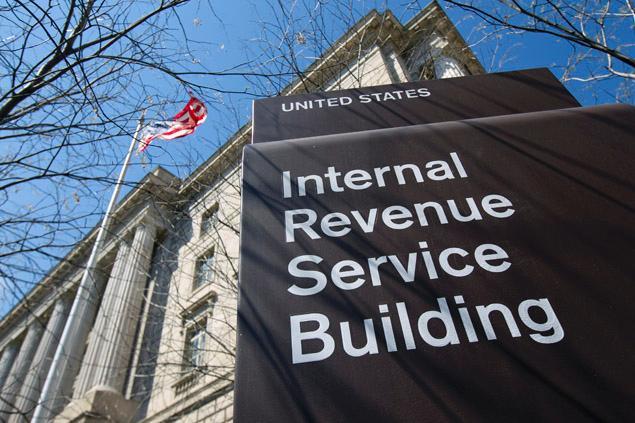IRS Proposes $600 Casino Winnings Tax Threshold
Posted on: March 6, 2015, 01:06h.
Last updated on: January 12, 2023, 11:16h.

The IRS isn’t one of the more popular government agencies in the US and the tax enforcement agency’s latest pitch likely won’t increase its favorability, at least in the minds of gamblers.
In a proposal released this week, the IRS believes the tax threshold on winnings from slots and bingo should be cut in half from $1,200 to $600. Keno would see an even more drastic reduction from its current level of $1,500 down to the $600 amount.
Although the agency granted the casino industry with a 90-day period to respond with its concerns on the proposal, the opposition wasted no time in expressing its strong disapproval. “This potential policy change could create additional burdensome and unnecessary reporting requirements for our industry,”
Sara Rayme, American Gaming Association senior vice president of public affairs told members in an email Wednesday night. A more formal response to the IRS plan will be presented by gaming organization tax representatives in the coming weeks.
Play Stoppage
Should the IRS get its way, the gaming industry says the extra paperwork would have serious financial complications. Existing regulations require a slot machine to lock after a player hits a minimum jackpot of $1,200. Once an attendant has the winner complete the necessary tax forms, the machine is then reset.
Lowering the rate in half will only lead to additional stoppages, which would result in reduced revenues. Eric Shippers, an executive with Penn National Gaming who is supervising the building of the company’s Massachusetts slot casino, estimates the state could lose $31 million in revenue and $15.2 million in taxes with a lower threshold. “We certainly plan to weigh in during the comment period,” Shippers said. “We’re very concerned about the notion of reducing the trigger level.”
Tax wardens feel differently, citing that today’s record keeping and paperwork is largely done electronically and downtimes wouldn’t be greatly affected. Through the use of loyalty cards that already track and record player activity, the IRS believes the reduction is a feasible measure that won’t lead to reduced incomes for the casino or government. To its credit, the IRS hasn’t guaranteed the revision will occur, saying it will wait to hear feedback from the industry before making a final decision.
Change Needed?
Most agree changes need to occur to the casino tax winnings threshold. The cap used today was first passed back in 1977. Gambling proponents argue that a change to any threshold should be the complete opposite of what the IRS is proposing. Factoring in inflation, that level imposed nearly 40 years ago was $4,627.
“If anything, the reporting threshold should be increased to account for inflation,” Shippers opined. To properly adjust the rate in accordance with the decades old scale, the figure today should be $17,844, a far cry from $600.
But like cigarette smokers, gamblers are often the first targets politicians and government agencies focus on when in need of a few extra bucks. “It’s a big step backward for the industry,” Rayme declared. “It could put the industry at a serious competitive disadvantage to other forms of entertainment that competes for consumers discretionary income.”
Last Comment ( 1 )
This will kill the gaming industry